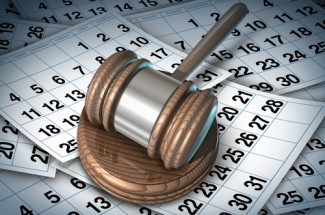Evaluate law by happiness impact, profs suggest; is 20 years in prison four times worse than five?

Photo from Shutterstock.
Three Chicago-based law professors are suggesting an alternative to cost-benefit analysis in evaluating laws: well-being analysis, which looks at happiness and quality of life.
In their new book Happiness and the Law, the law professors use research such as the General Social Survey, which tracks happiness and quality of life, to quantify happiness, the Chicago Daily Law Bulletin reports. The authors are law professors Jonathan Masur of the University of Chicago, John Bronsteen of Loyola University Chicago and Christopher Buccafusco of IIT Chicago-Kent.
In one example, the authors consider whether 20 years in prison is four times as bad as five years in prison. The professors consulted three types of data and concluded that, in terms of happiness, “five years and 20 years [in prison] aren’t actually all that different,” Masur tells the Daily Law Bulletin.
The three sets of data considered were:
1) Research on the impact of prison after an inmate’s release. Ex-cons often struggle to find a job and a spouse, and to stay healthy.
2) Research on how happiness is affected by being jobless, unmarried and ill.
3) Research on the way prisoners adapt to prison hardships the longer they spend behind bars.
“A lot of what we write about might initially sound a little pie-in-the-sky,” Masur told the Daily Law Bulletin, “but a lot of the data that you’d want to use to rethink law is out there already.”



